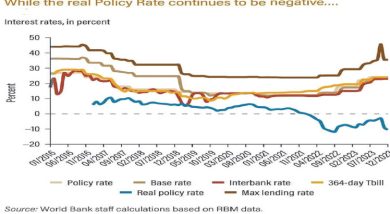Malawi seeks fair returns from mining investment

A senior government official in the Ministry of Finance says government is currently implementing a number of measures to ensure Malawi’s effective negotiations of mining agreements.
“Capacity building initiatives are in place aimed at equipping officials with knowledge and skills necessary to understand the fiscal issues and mining legislation which will ensure that subsequent mining agreements are negotiated effectively.
“This will give the country and all Malawians a fair return from the mining investments,” said Ken Matupa, acting director of revenue division in the Ministry of Finance.
His comments is in response to a public outcry by Malawi’s civil society organisations (CSO’s) who have revealed that the country continues to lose billions of kwacha due to tax incentives being offered to multinational companies in the mining sector.
Following the launch of a joint study report by the Malawi Economics Justice Network (Mejn) and Action Aid International Malawi, it was revealed that the country has lost about K100 billion between 2008 and 2012 due to tax exemptions.
Currently, the guiding legal instruments under the taxation system in Malawi are the Customs and Excise Act, Taxation Act and Value Added Tax (VAT) Act which guides the assessment and collection of legitimate revenues for the government.
The legal instruments guide the implementation of the various taxes that are collected by government in form of international trade taxes, income taxes and VAT.
“Government also continues to train officers from key institutions in contract negotiation skills, especially for the mining sector,” said Matupa.
He explained that government is also undertaking steps to review the mining legislation and has also engaged consultants from the United Kingdom under the World Bank Mining Governance Programme to review the current mining fiscal regime.
Matupa said after the completion of the review exercise, the consultants will design and recommend the best possible fiscal regime that will ensure that government retains a fair share of revenue from the minerals while remaining competitive and attractive to investors.
He said government will ensure that CSO’s and, where possible, the citizenry are engaged to ensure ownership of the process.
In this regard, the Customs and Excise Act is being reviewed and the Taxation Act will be reviewed to improve their effectiveness and align them to best regional and international practices.
“In all these processes, key stakeholders will be involved to ensure that the taxation laws in Malawi address the challenges that exist across all sectors in the economy,” he said.
Matupa said government has been undertaking a review of its incentive regime since 2012 and some of the findings from this review were implemented in the 2013/14 budget.
But he admitted that such a process requires the requisite skills in computer-based audits for specialised field, knowledge in transfer pricing, among others, including the need to have in place Double Taxation Agreements (DTAs) that should safeguard national interests so that Malawi does not lose its taxing rights.






Thanks for the reportage. Looking forward to what 2014 brings in terms of reviewing some of the outdated laws.